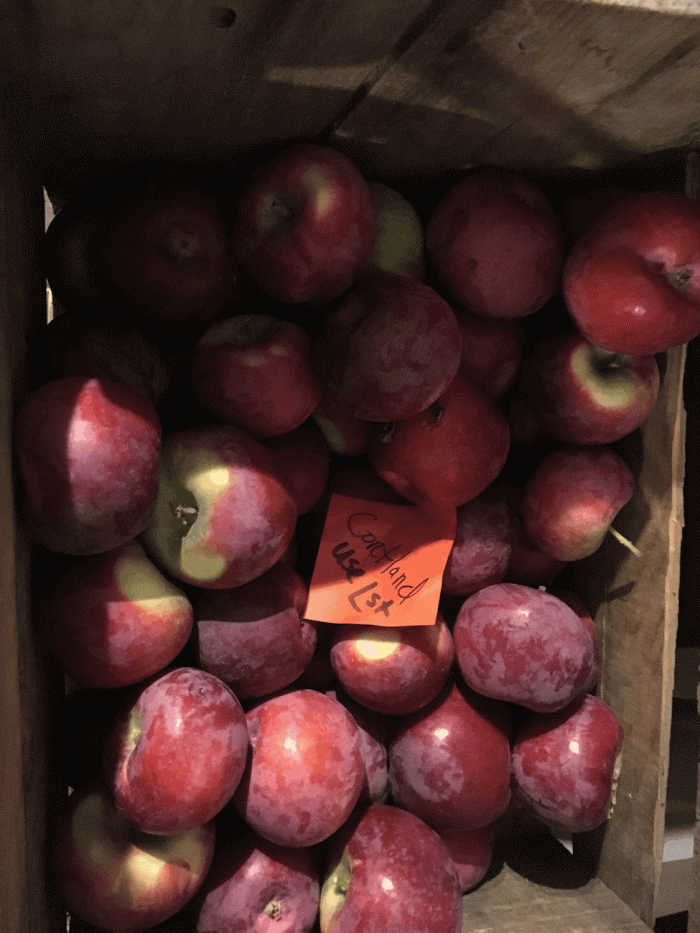

Scheduled for a vote today, the Agriculture and Nutrition Act of 2018 (H.R. 2) is “being called a farm bill fiasco,” said U.S. Congresswoman Chellie Pingree (D., Maine), delivering the Kirschenmann Lecture at Stone Barns Center for Food and Agriculture in New York on Monday night.
This bill provides funding for crop insurance, research, commodities, and most of all nutrition assistance.
My teenage daughter and I expected to hear about organic ecosystems. Her class is reading The Omnivore’s Dilemma and it has stirred her concern about our food system.
Instead, Congresswoman Pingree, who runs an organic farm on North Haven Island, spoke on behalf of the “elemental,” basic right of people in a rich land to have enough food.
The immediate story is the incongruity of the massive tax cut that was passed last September as seen beside the energy put forth to fight access to food. While progressives and farmers, young and old, would like to focus on land ethics, young farmer support, and crop resilience, 80% of the bill is necessarily about nutrition. Republicans have introduced changes to remove two million people from eligibility. Democrats refused to vote for it in committee and are expected to reject it today when it comes up for a House of Representatives vote.
The farm bill is renewed every four years, and a failure to pass it this week may mean that it is unfunded in September when the current farm bill expires. Supplemental Nutrition Assistance Program (S.N.A.P.), which used to be known as food stamps accounts for 80% of the provisions.This is the main hunger-fighting program in America.
As has been shown by government agency investigations, S.N.A.P. fraud is only 1%, a decline over the last fifteen years. In addition, the savings in S.N.A.P. money proposed by the new bill over the next ten years is only one third the cost of the tax cut, according to Paul Krugman of The Washington Post.
As happened in 2013 under Congressman Boehner, a Republican-crafted farm bill may be rejected by most Democrats because of cuts to low-income families.
If Democrats and moderate Republicans can’t stomach voting for the final bill, farmers and the 42 million people who depend on food assistance will probably see continuing resolutions as we did with the last farm bill. This perpetuates power politics when innovation and compassion could define our country.
The fact that 90% of families have chosen organic could influence our policy. Instead, as Pingree said, “We’re dealing with trying to fight back cuts and fight back zeros.”
Congresswoman Pingree stressed that “[working on the agriculture committee] tends to be a very bi-partisan, wonderful way to work.”
She said we mustn’t assume that Republican representatives are against provisions that support organic farms and S.N.A.P. Agricultural bills have a history of being regional rather than party-based.
Rep. Pingree said there are also Democratic representatives who come to her after learning more about the issues from their constituents, not realizing that there was such support for measures like G.M.O. (genetically modified organisms) labeling. One bi-partisan success was the legislation requiring G.M.O. labeling, signed into law in 2016 by President Obama, after “we were lobbied by Monsanto (to vote against the labeling) at levels that had never been seen before…People want to know what’s in their food.”
Only one-tenth of one percent of the farm bill is for organic production research. Dispiriting. With more research funding, we could be working to get a sustainable food ecosystem closer to meeting the world’s caloric needs.
We are stuck with fighting for a basic right: not to go hungry.
My daughter learned that a usually bi-partisan process became a fight against Trump zeroing out much in the budget for our low-income neighbors. We contacted our congressman and asked him to be open to the advocates for supplemental nutrition. If anyone else would like to do the same, here is a site where you can find your representative: https://www.house.gov/representatives/find-your-representative
Children who receive adequate food have been proven to thrive as adults. How about: people who receive adequate food receive adequate food?
https://www.elephantjournal.com/2015/04/when-it-comes-to-our-health-its-time-to-stop-listen/
https://www.elephantjournal.com/2012/01/10-reasons-i-love-monsanto/
Browse Front PageShare Your Idea
Comments
Read Elephant’s Best Articles of the Week here.
Readers voted with your hearts, comments, views, and shares:
Click here to see which Writers & Issues Won.




